During the Dust Bowl days, the Joad family made their way across the West in search of a better life in California in the timeless epic The Grapes of Wrath. The Golden State is again attracting a famous Oklahoma family. But this time it’s in pursuit of a better glass of wine.
University of Oklahoma coaching legend Barry Switzer has teamed up with some of the biggest names in Napa Valley to establish Switzer Family Vineyard.
Earlier this year, they kicked off the new business venture with the launch of its vintage 2008 Cabernet Sauvignon, a wine Switzer says is sure to please even the savviest wine drinkers.
“Unsolicited people have told me it’s better than what they expected, and I like that comment,” Switzer says. “I haven’t had anyone say anything negative about it and they shouldn’t. Because anyone who knows anything about wine, they know when they taste this, this is a good cabernet.”
Switzer says his family kicked around the idea of starting a winery for a couple of years. But like his Sooner teams of the past, the old coach wouldn’t accept anything but the best. To keep that winning tradition alive, he partnered with Napa Wine Company’s Andrew Hoxsey and Republic National Distributing Co.
“I never thought of being on a bottle of an alcoholic beverage, but we start talking about it and then went out there and had some meetings,” Switzer says. “Once we knew we wanted to do it we got involved with the right team and right product.”
Switzer Family Vineyard started out small this year with a batch of 560 cases of wine. They plan to push production to 750 cases next year, then 1,000 the following year with the possibility of doubling that number in the future.
The wine is available at liquor and spirit shops across Oklahoma and neighboring states.
“The target market is the old Big 8 conference, and we’ll go from around Dallas all the way to Nebraska,” Switzer says. “And it will be available in my home state of Arkansas.”
Growing up the son of a bootlegger, Switzer never imagined he’d follow a similar path. Especially not in the wine industry, which was almost non-existent in Arkansas and Oklahoma in the 1950s.
“When I was a student at the University of Arkansas in the 1950s, I used to drive through Altus, Ark., where they had Wiederkehr Winery, and it stood out because at that time there weren’t big California wines or American wines,” Switzer says. “I always thought wineries were in France and Italy, but here was one making wine in Arkansas in the ‘50s.”
The wine industry gradually made its way to the area. Today about 100 wineries exist in the state, while more Oklahomans are sipping red and white wines.
“There has just been an explosion of wineries in the state and it’s amazing because weather is so harsh here,” Switzer says.
Switzer says he began drinking wine about 30 years ago at the urging of longtime friend Patsy Benso.
and we’ll go from around Dallas all the way to Nebraska.”
“He was giving me a lecture, as he always does, and he said, ‘If you’re going to drink, drink wine and drink red wine,’” Switzer says. “He said, ‘It’s better for you, and it’s not as hard on you as the whiskeys and bourbons.’”
Switzer took the advice but said it wasn’t until several years later that he developed a taste for fine wines.
While coaching the Dallas Cowboys, Switzer regularly dined with team owner Jerry Jones over elaborate dinners on the night before games. Along with enjoying some of the finest food in the country, Switzer’s wine palate evolved.
“When we went out for diner, Jerry would tell me to order the wine, and I found out the price doesn’t always mean it’s the best tasting wine for your palate,” Switzer says. “I found out lots of good wines don’t cost as much.”
And like many wine connoisseurs, Switzer and his family made their way to Napa Valley to enjoy some of the finest wineries in the country. During those trips, they threw around the idea of opening their own label. To get a better perspective on the possible business venture, they contacted Hoxsey, a fourth-generation grape grower and one of the leading winemakers in Napa Valley.
Switzer says Hoxsey was very receptive to the idea. While in town for a marathon, he visited the Switzer home and helped develop a plan for Switzer Family Vineyard.
“We wouldn’t have done this without (Hoxsey) because like I told my son-in-law, there’s no way I would put a wine out there with my name on it that we did not feel was a real quality product,” Switzer says. “It wasn’t about trying to really be a commercial venture to make a lot of money. It was about doing something fun and something that we were interested in. To do that we wanted the right people and the right team. And that’s what’s happened for us.”
The company later signed a long-term contract for grapes to be grown in Oakville, Calif. In two years, they will have their own vineyard space where the grapes will be grown and harvested.
Switzer says they might add a pinot noir wine in the future, but for now they are putting their efforts into the cabernet.
“Andrew Hoxsey told us not to do a bunch of wines, but do a great wine and establish the product,” Switzer says. “It’s all about the palate and making something people enjoy.”



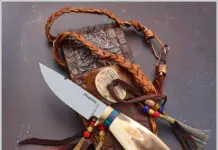











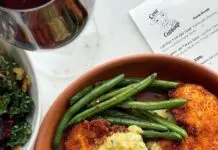

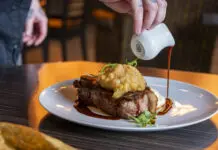

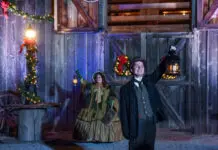
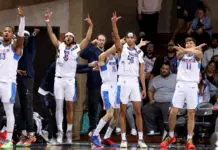


 Photo by Heath Sharp.
Photo by Heath Sharp.